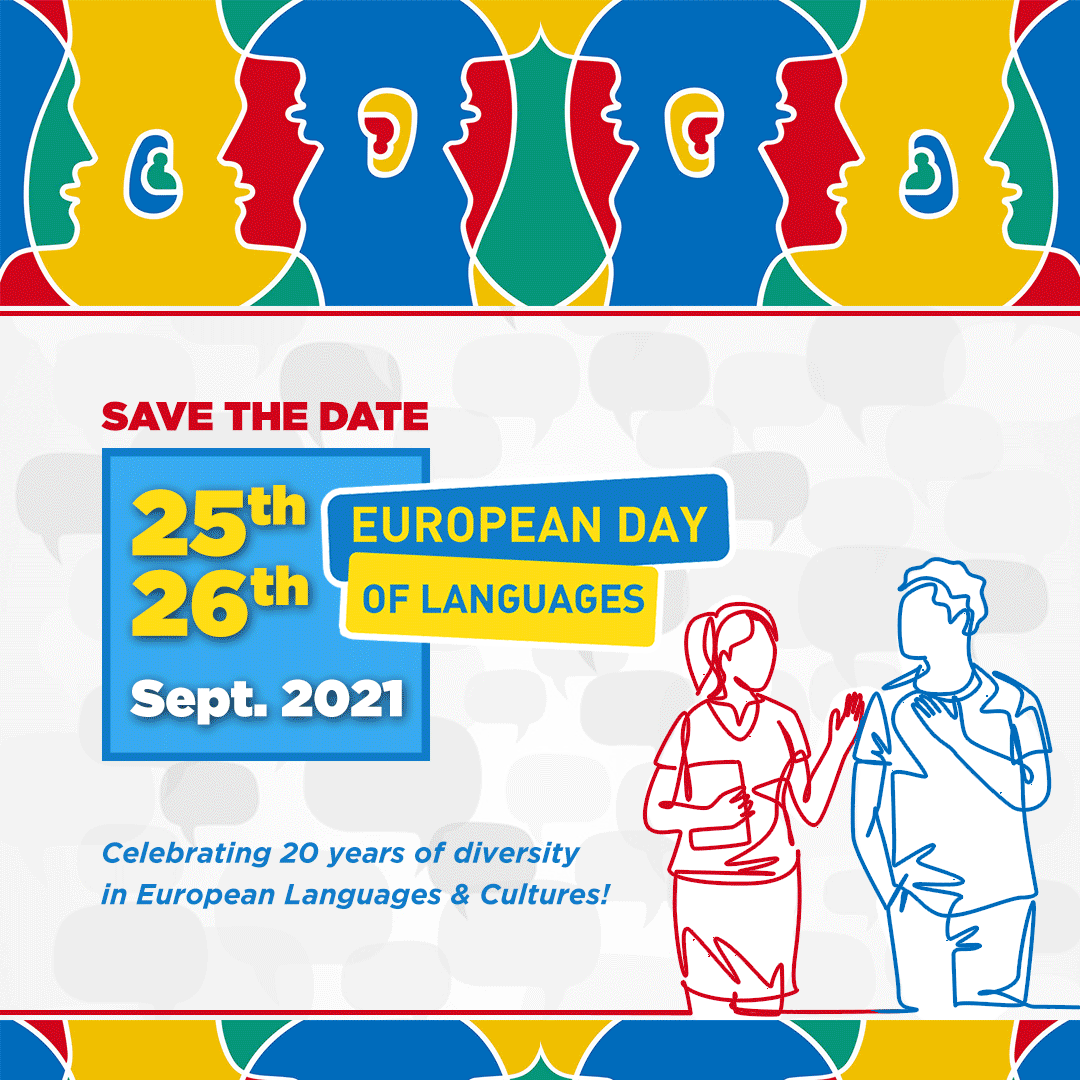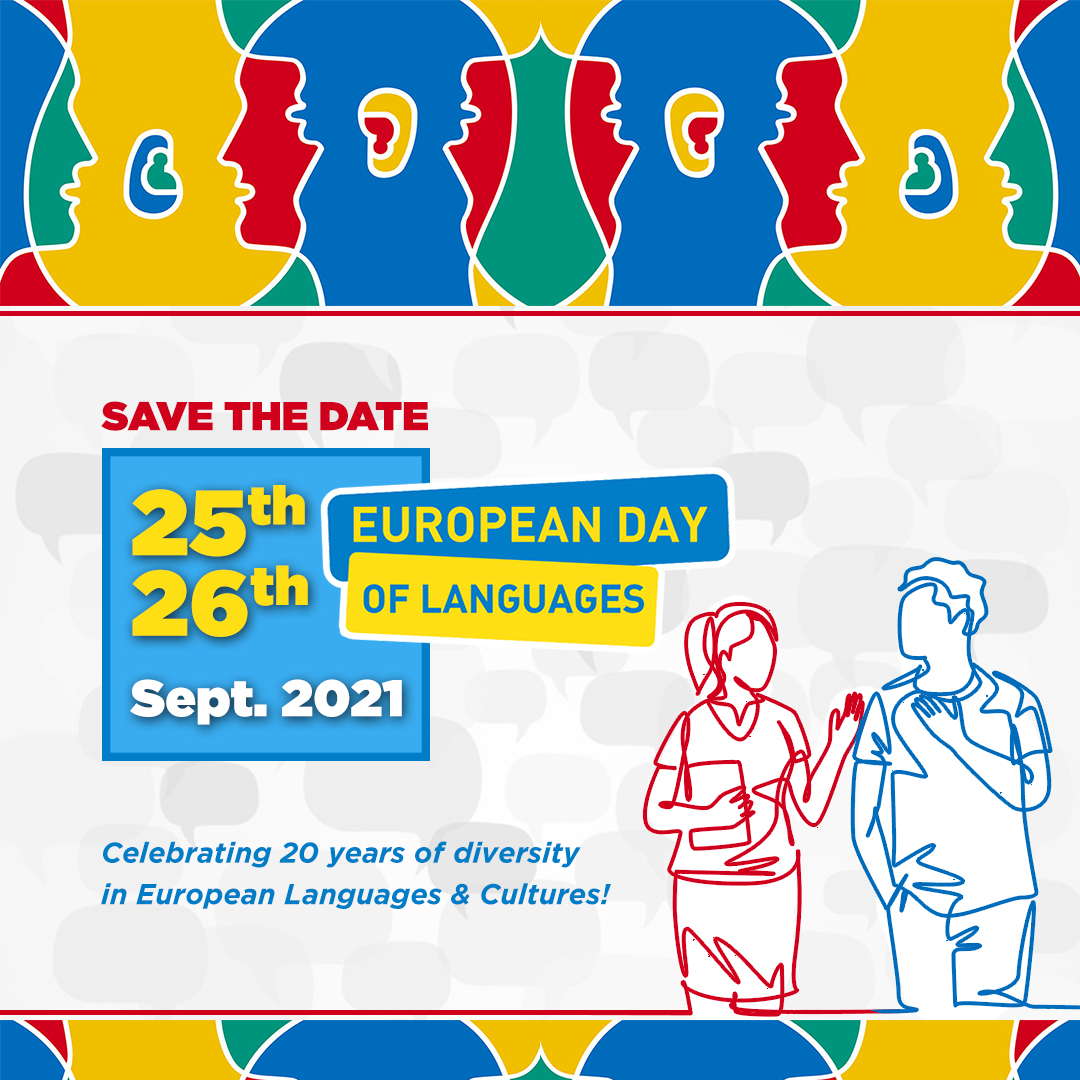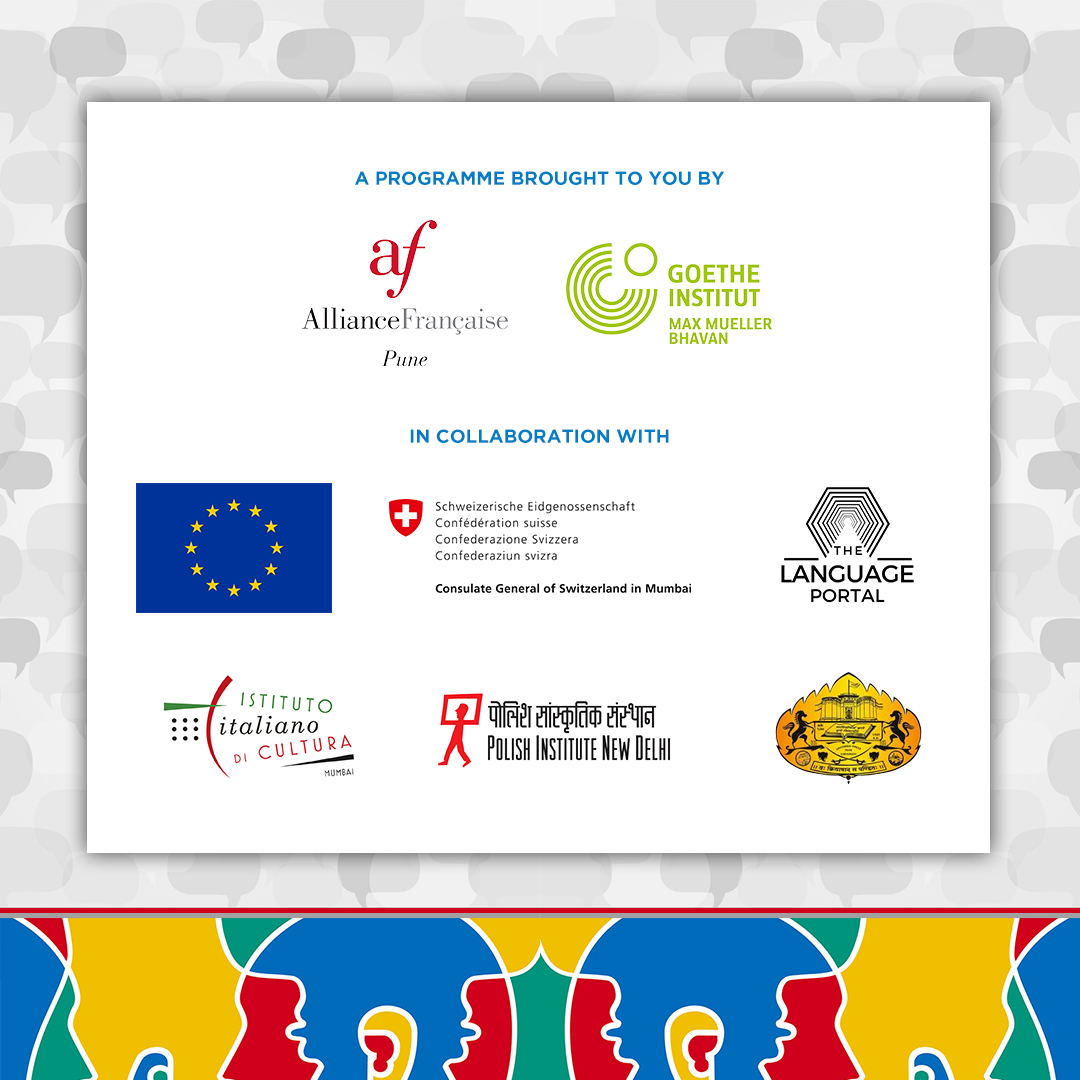Date/Time
Date(s) - 25/09/2021 - 26/09/2021
11:00 am - 5:00 pm
Categories
At the initiative of the Council of Europe, the European Day of Languages (EDL) has been celebrated every year since 26 September, 2001. The general objectives of this celebration is to alert the public to the importance of language learning, to enhance intercultural understanding and encourage lifelong language learning.
This year (2021) marks the 20th anniversary of EDL celebrations worldwide. On this occasion, the Alliance Française de Pune and the Goethe-Institut Pune have partnered with Savitribai Phule Pune University, the Italian Cultural Institute of Mumbai, the Polish Institute New Delhi, the Consulate General of Switzerland in Mumbai, The Language Portal and the Delegation of the European Union to India and Bhutan to bring language learners a cultural programme centred on the importance of language learning and cultural exchange.
Programme Overview
*All activities are taking place online
Saturday, 25 September, 2021
11 am – 5.30 pm – Language Taster Workshops
Discover different European Languages and Cultures on the European Day of Languages!
Free registration | Limited Seats | Register via forms.gle/4GhgT94DA4P5Uosx9
Event courtesy of the Alliance Française de Pune, the Goethe-Institut Pune, Savitribai Phule Pune University, the Istituto Italiano di Cultura di Mumbai, the Polish Institute New Delhi and The Language Portal.
7 pm – 8 pm: Language Learning in the Era of Translation Technology (Webinar)
Once the stuff of science fiction, technology that enables people to talk using different languages is now here! The use of AI has led to remarkable improvements in the quality of Google translations, and increasingly accurate speech recognition technologies are now widely available. Some examples include home voice recognition systems such as Siri, Alexa and Google Assistant.
Google has also launched wireless headphones that feature real-time language translation and Microsoft has developed their own app which translates street signs.
With the advent of these technologies, do we need to learn new languages at all? How does this technology work, what are its benefits, and what are its possible consequences for the educational ideal of multilingualism? How can language learners equip themselves to enter the current job market as translators and/or interpreters?
Language and IT experts Sandeep Nulkar (India), Richard Simcott (UK), Thierry Poibeau (France), Chiara La Sala (Italy), Ralph Krüger (Germany), and Kshama Dharwadkar (India) will tackle these questions during a LIVE panel discussion on Zoom.
Free registration | Limited Seats | Register via goethe-institut.zoom.us/webinar/register/WN_aH4wMN3hR-Od97ugA9jP6w
[divider]
Sunday, 26 September, 2021
11 am – 5 pm: Allegra! A look at Romansh, Switzerland’s fourth language
What does Switzerland sound like?
Switzerland has four national languages – German, French, Italian and Romansh. Romansh is mainly spoken in the trilingual canton of Graubünden, which is often referred to as ‘little Switzerland’ because of its shape and its own linguistic diversity. Romansh is the main language of 0.5% of the Swiss population, thus of around 40,000 people. Romansh speakers are unique in that they are all bilingual, and they speak another national language.
Learn to speak Romansh, a rich and vibrant language, with this crash course of 5 video lessons on Facebook @AFPune @mmbpune
Free and Open to all | No registration required
Event Courtesy of the Consulate General of Switzerland in Mumbai


